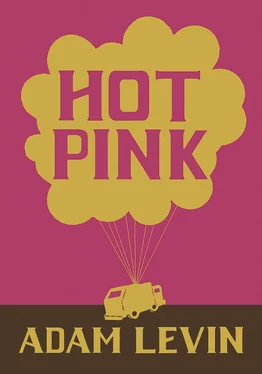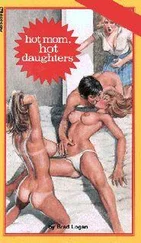That night at dinner, Dad gave us the lowdown. “Spilled milk,” he said. “Another year. No big thing.”
Mom rolled her eyes.
After another couple years, Timmy’s studying the Gnostics, Brian’s a hand-to-hand weapons geek, possibly dealing, and Mom’s on a semester’s suspension from Lincoln Elementary for saying “Hispanic” instead of “Latino” at an assembly during Diversity Week. No one in Waukegan is gay and I’ve lost all vestigial interest in the bodies of women, even movie stars.
And Dad’s done just what Good Parent asked him to do, but now they have a problem with the quality of the paste: it’s too good. Good Parent needs to be able to count on Bonnie’s obsolescence. They want a paste that will slowly destroy Bonnie’s insides so that after eleven months Bonnie will break and the little girls will have to buy a new Bonnie, maybe a new and improved Bonnie, maybe even a Bonnie that can digest real food.
Dad gets back to work and, six cloistered months of labor later, he’s invented a nontoxic, corrosive molecule with which he augments the paste. With each successive paste-feeding, the plastic gaskets in Bonnie’s mini-tract dissolve a little. It’s doubly brilliant because the more Bonnie’s gaskets dissolve, the less she can “digest,” which means not only that she needs to consume increasingly larger volumes of paste to stay out of the caloric red zone, but that her gaskets wear away at a higher rate as time marches on. When Dad graphs “Paste Consumption over Time” and superimposes it on “Mass of Gaskets over Time,” the effect is gorgeous: a lopsided X.
In the week between his completion of the paste and its presentation to Good Parent, he prints out hundreds of these graphs and papers the walls of the house with them. For the hell of it, he adds a speculative z axis titled “Geometric Escalation of Concern” to the graphs he hangs in the family room. It’s the most promising gesture he’s made since singing “Please, Please Me” in the kitchen, and we all fall under the spell of it. Even Mom. That Saturday, she breaks into her savings to take us shopping for jeans at the outlet mall and we share food-court Chinese off styrofoam platters.
“We’re fine,” she says. She buys herself new lipstick and gets it all over our faces, our necks.
Good Parent tells Dad that the paste smells too good, that their initial idea of an entirely good-smelling paste lacked foresight, that since the gist of the Bonnie doll is that she’ll help prevent girls from acquiring eating disorders, Bonnie’s food should definitely smell good at the outset (though not so good that Bonnie would want to binge on it), but when the food is processed and turned into “excrement” or “vomit,” it should smell bad — or at least not like strawberries — lest the Bonnie product send a mixed message to its at-risk consumers, which could mean lawsuits. They tell him that as long as he’s going to take the time to fix the paste-smell situation, he might as well also figure out a way to cause an excess of hair to form on the bodies of Bonnies who refuse to eat and won’t cut back on their overzealous exercise routines.
By now, it’s been four years since Dad finished the mini-tract. Our savings are gone and our family is living off my mother’s teaching salary. Mom’s well on her way to a blackboard-related repetitive-motion injury, the twins are about to turn fourteen, and I’m at the peak of my adolescence and I need Zoloft and better Levi’s and I can’t stop thinking about cars and how all the other kids get cars when they graduate high school, which isn’t true at all but feels true. I’ve never kissed anyone with tongue and I doubt I ever will.
Dad seems fine, maybe a little sleepless, but otherwise fine, and then he goes out for smokes one day and forgets to wear pants. The bulls haul him back to us. Timmy and I meet them out front.
“This poor, sick man your father?” says one of them.
“Get some fricken slacks on him or we charge his ass,” says the other one.
Timmy runs inside.
“Leave our property,” I tell them.
“Listen to this pillow-biter! Doesn’t know when he’s getting a kindness done to him.”
“Have a little mercy. He’s the son of an indecent exposer: apple and the tree.”
“Fruit and the tree’s more like it. Stay off the streets of Waukegan.”
The cops drive away. Dad goes straight to the attic.
Despite the brush with public indecency, he finishes designing his revolutionary Mustache & Happy Trail SkinStrips the very next day. For his edification, and to show our allegedly continuing support for the Bonnie project, Mom uses her discount to buy him a new hardcover bestseller called Beyond Fat and Thin: Dispelling the Myths Surrounding Eating Disorders by eating-disorder specialist Russell Randbert, PhD.
This turns out to be a mistake.
In his book, Randbert argues that girls acquire eating disorders when they feel out of control. He explains that binging, purging, starving, and reckless exercise are not symptoms of a negative self-body image but means by which girls can gain a temporary sense of autonomy over their bodies. The negative self-body image, Randbert says, comes after the dysfunctional eating behavior manifests: “I’m too fat” is the easiest explanation a girl has to offer herself for why she is engaging in behavior that only happens to make her thin. “I’m too fat” is not only a “delusion,” Randbert quips, but a “delusional motive,” as can be inferred by observing that psychotherapies that address body-image issues invariably fail, whereas those that focus on control tend to succeed.
Once Dad’s finished with the book, I read it. His marginalia are crackpot for the most part: frowny faces and hanging stick-men, short-fused sticks of dynamite, mathematical equations containing exclamation points. On the inside covers are 3-D diagrams of alien digestive systems, their labels done in block letters: A NINE-CHAMBER YOU-LOSE STOMACH, THIS STUPID ESOPHAGUS, THE WHEREFORE ART MY BOWEL. But then, at the end of the book, fountain-penned in the half page of white space under the acknowledgements, I find this: “Although a given toddling-to-preadolescent girl will, to a certain degree, control her Bonnie, the manner in which Bonnie obsolesces will undermine any sense of control the girl could have otherwise acquired through the exercise of Bonnie as self-metaphor. I fail I fail I fail them all.” The handwriting is deceptively neat.
I pass the book on to Mom. She skims it. Then she throws it in the fire.
My father — like Nobel, I’d like to think — becomes fatalistic. His creativity gets blocked.
He locks himself in the attic laboratory and bleats, and sometimes there are smashing sounds. He can’t figure out how to make a paste that starts out smelling good, ends up smelling bad, and corrodes the mini-tract all the while. He drinks, fights with Mom. He becomes impotent. Mom, in her loneliness, has made of me a reluctant confidant is how I know that. She and I start scarfing pints of ice cream together at midnight. I get cavities, she gets heavy. All of us dread dinner. Dad comes to the table and refuses to eat, saying, “I don’t deserve it, I don’t deserve your food,” while Mom looks to me for shrugs of allied contempt. Our father gets so skinny, the neighbors start talking cancer. We let them talk, fearful that any sympathy they might have for us will lessen if they find out he’s insane. We despise him and we don’t even fear him.
What makes it worse is how so much of his falling apart gets realized through the attempts he makes to put himself back together. Like some pop-eyed Manson Family ascetic, he invents rules about watching television. For example: he must change the channel once and only once every ten minutes, whether or not a commercial is on. Next it’s his bowels: he has to sit on the toilet from 9:30 a.m. to 9:50 a.m. and cannot sit on the toilet at any other time of day, regardless of his needs. Every morning at eleven, he plugs the bathroom sink and fills it with near-scalding water, then plunges the first joint of his pinkie in, holds it there for thirty seconds, and doesn’t breathe. He’s no fool, my dad. He knows he’s making self-destructive gestures and, worse than that, he knows that nearly scalding your pinkie is a half-assed way to go about self-destruction. One morning, I come across him in the hallway outside the bathroom and he puts his arm around me, says, “Mike, your dad’s a pussy. A real pussy.”
Читать дальше











